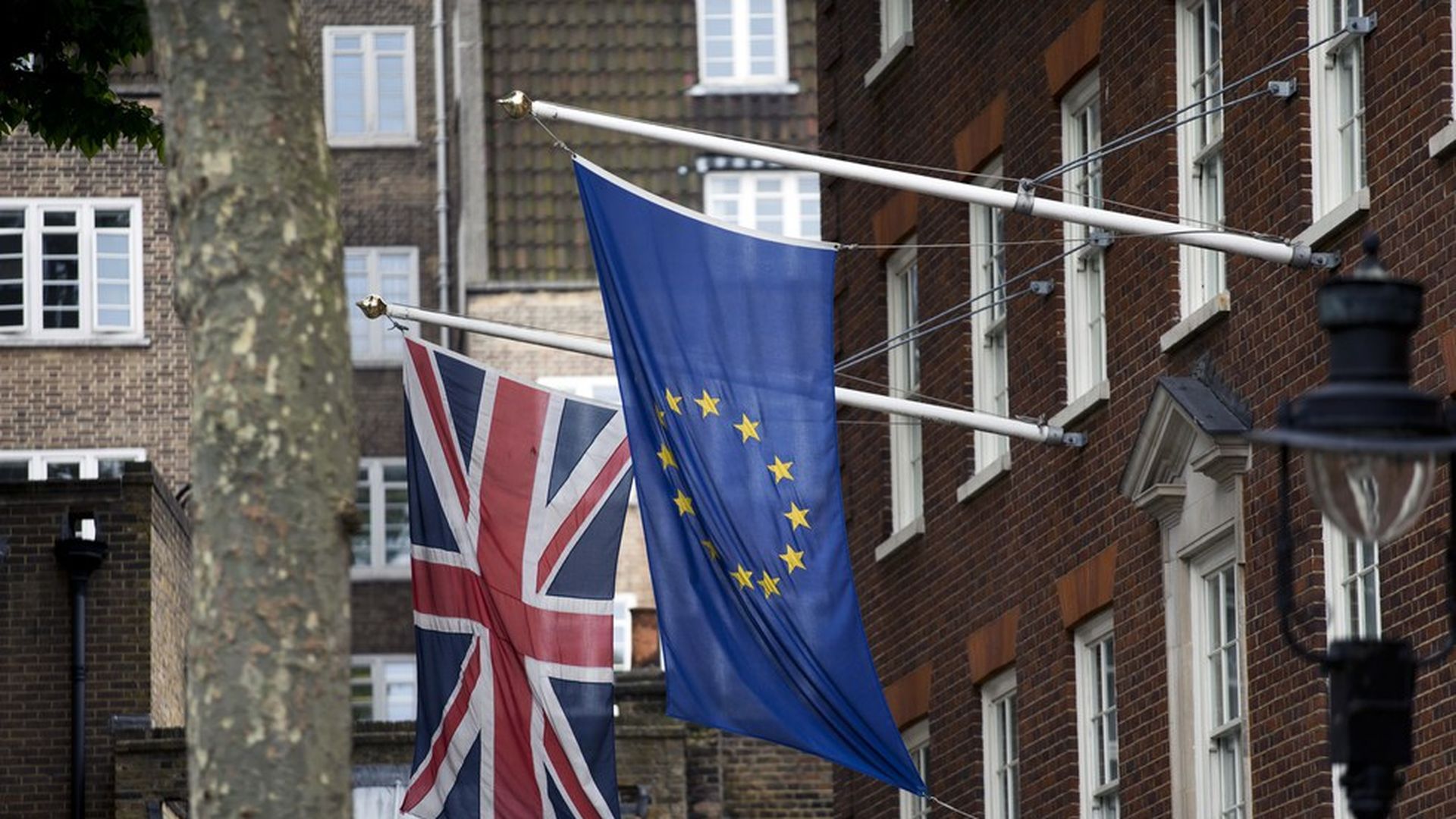Aug 15, 2017 - Politics & Policy
UK wants to keep EU customs relationship during transition
Add Axios as your preferred source to
see more of our stories on Google.

A British flag (left) and EU flag (right) hang outside Europe House, the European Parliament's British offices, in London (Matt Dunham / AP)
